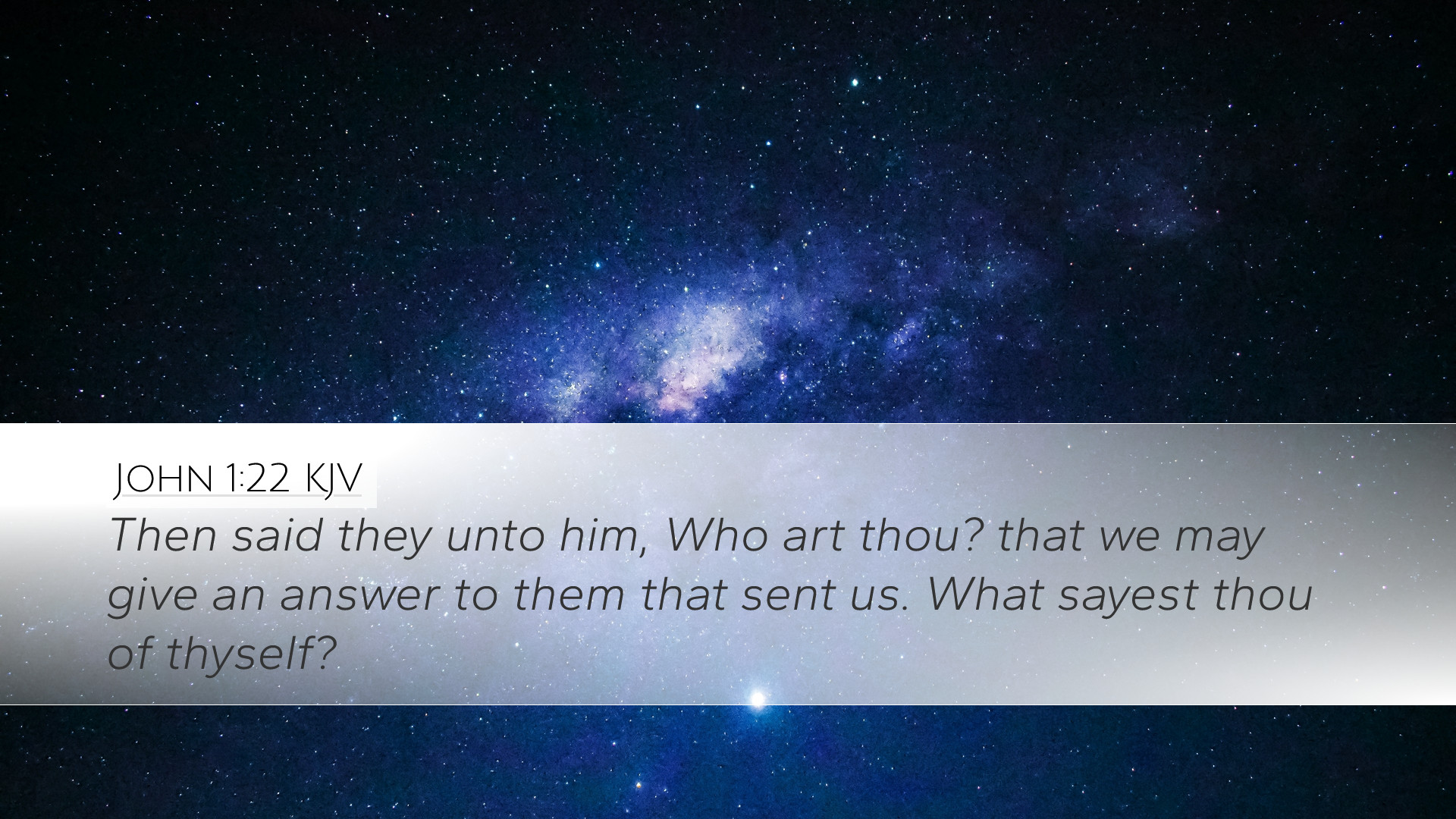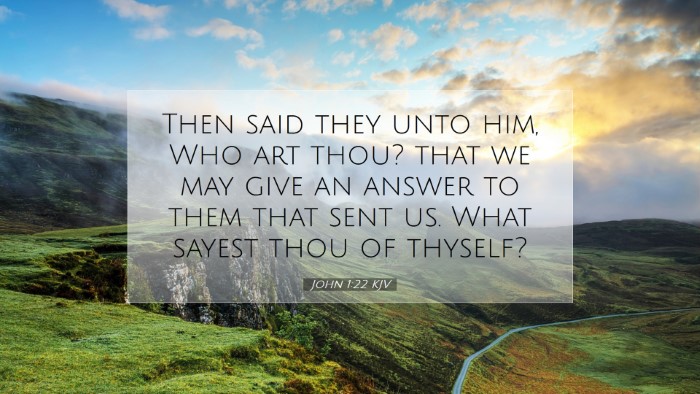Commentary on John 1:22
Verse Context: In John 1:22, the inquiry of the priests and Levites continues as they question John the Baptist about his identity and purpose. After John has denied being the Christ, Elias, or that prophet, they press him further, leading to this pivotal moment in the dialogue.
Critical Observations
John 1:22 states: “Then said they unto him, Who art thou? that we may give an answer to them that sent us. What sayest thou of thyself?” The question reflects their need for clarity and authority, underscoring the significance of John's role in preparing the way for the Messiah.
Historical Context
Understanding the socio-religious context in which this verse was recorded can illuminate its meaning. John the Baptist appeared during a time of great expectance for the coming Messiah in Jewish theology. The scribes and Pharisees had their own interpretations and were baffled by John's atypical ministry.
Insights from Matthew Henry
Matthew Henry emphasizes John's role as a forerunner to Christ. He suggests that the inquiry from the priests and Levites mirrors human curiosity about divine messengers. Henry posits that John's humility in redirecting attention away from himself to Christ is a model for all believers. He writes, “Though he had a remarkable birth, a divine call, a holy disposition, and a miraculous work, he acknowledged his mission as one of preparation, not prominence.”
Insights from Albert Barnes
Albert Barnes expands on the phrase “What sayest thou of thyself?” He highlights the Jewish tradition of questioning authority, which denotes their desire for understanding the divine purpose evident in John's actions. Barnes notes that by asking this question, they hoped to ascertain John's legitimacy and the nature of his prophetic ministry. He observes that John's willingness to reveal his role ultimately leads to greater proclamation of Christ's supremacy.
Insights from Adam Clarke
Adam Clarke provides a detailed examination of the text and focuses on the underlying implications. He asserts that the inquiry acts as a catalyst for John to explain his role as the one “crying in the wilderness.” Clarke suggests that John's testimony serves as an essential precursor to the coming of Jesus, making it crucial for the Jews to comprehend the paths leading to their Messiah.
Theological Implications
The inquiry of the Jewish leaders unveils theological themes relevant to the understanding of prophetic authority, humility, and witness. John’s answer becomes an essential part of the Johannine narrative, demonstrating how one’s identity in Christ is rooted in understanding one’s purpose concerning the greater plan of God.
- Identity and Ministry: The question highlights the importance of knowing one’s identity as it relates to God’s mission. John does not reveal himself as anyone significant; rather, he reveals the need for preparation for the Lord’s coming.
- Divine Calling: This moment emphasizes that every believer is called to be a witness, echoing the sentiments of John by directing focus towards Christ rather than oneself.
- Humility in Service: The pride of the religious leaders contrasts the humility exhibited by John. Servants are often unseen but crucial in God’s plan.
Practical Applications
For pastors, students, and scholars, John 1:22 presents several practical applications:
- Reflection on Identity: Consider how one’s identity in Christ shapes one’s ministry. Are we drawing attention to ourselves or to Christ?
- Understanding of Prophetic Ministry: In a contemporary setting, what does it mean to be a voice in the wilderness of today’s world? How can believers prepare others for Christ effectively?
- Emphasis on Humble Service: Recognize the value of being a humble servant. Leadership in ministry requires recognizing the greater authority of Christ rather than elevating one's own status.
Concluding Thoughts
John 1:22 serves as a profound reminder of the importance of understanding one’s mission. The innocently posed question by the priests and Levites opens the door for a powerful declaration of faith and identity. As John prepares the way for Christ, so too should we prepare our own hearts and minds, focusing on our humble yet significant roles within the Kingdom of God.


